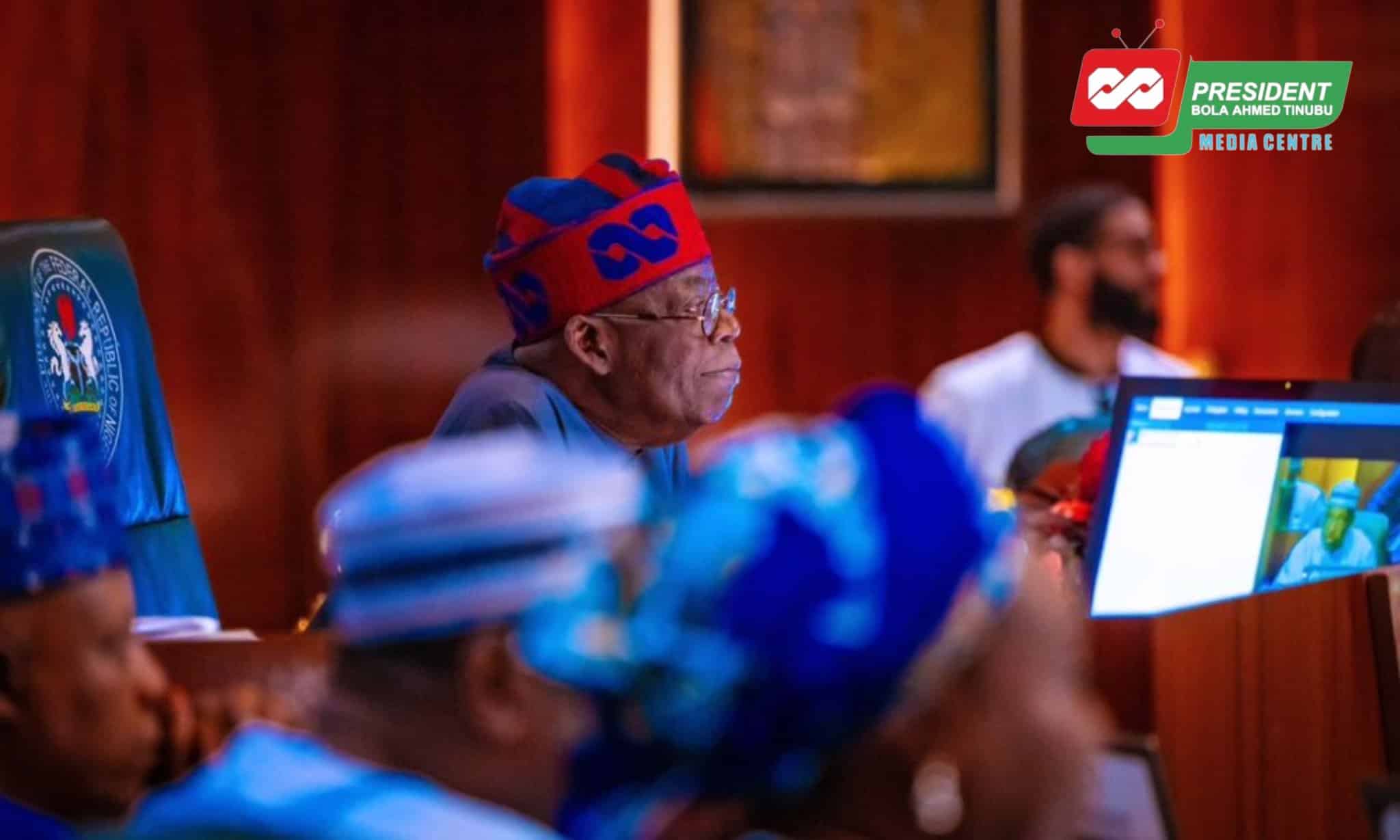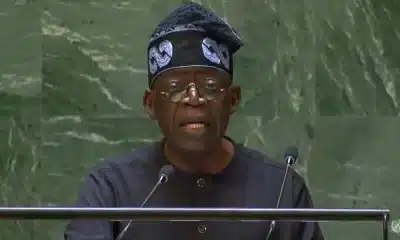Nigeria News
Major Highlights Of FEC Meeting In Aso Rock

President Bola Tinubu, on Monday, presided over the weekly Federal Executive Council (FEC) meeting held inside the Council Chamber of the Presidential Villa in Abuja.
Below are the major highlights of the weekly FEC meeting which was attended by Vice President Kashim Shettima, the Secretary to the Government of the Federation (SGF), Senator George Akume, ministers and other members of the cabinet.
– Eight new Permanent Secretaries who were recently appointed after successfully scaling the Federal Civil Service selection process were sworn in by President Tinubu.
– Approval of N27.5 trillion as the Federal Government’s aggregate expenditure for 2024; an increase from the N26.01 trillion earlier considered by the council. The targeted revenue for next year was disclosed to be N18 trillion.
– Approval of a $1 billion concessionary loan from the AfDB to support financing the budget and improve foreign exchange supply. The AfDB loan will have an interest rate of 4.2% for 25 years with an eight-year moratorium.
– The Fiscal Policy and Tax Reform Committee proposed the removal of VAT on diesel and is looking to increase the ratio of tax revenue to GDP to 18%, which is the average for Africa.
– The FEC also approved a total limit of N2 trillion to be available for use by the Ministry of Finance in order to go in and out of the market and essentially to, where possible, bring down the rate of interest on the current outstanding.
– Approval of the signing of a bilateral air service agreement with the Republic of Guyana that was entered in 2014.
– The approval of the award of contract at N3.233bn for the supply and installation of customized explosive and narcotic detection screening systems, with remote and dual views for the international airports of Abuja, Lagos, Kano, Port Harcourt and Enugu.
– Approval of Nigeria’s Draft Human Rights reports for further transmission to the United Nations Commission on Human Rights; the approval is for the fourth cycle of the United Nations Universal Periodic Review and in fulfilment of the practice of reporting human rights records.










